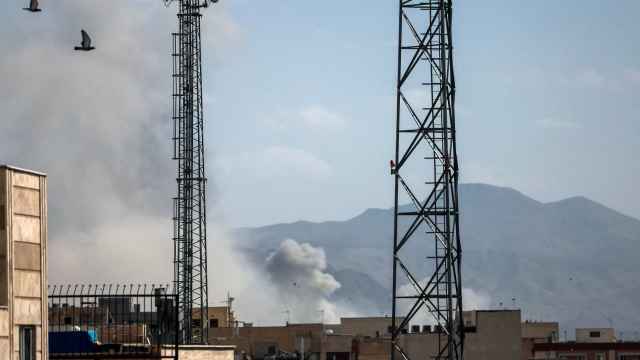Vladimir Lenin once said, "Communism is Soviet power plus the electrification of the entire country." Today, that slogan would read: "Communism is fair elections plus Internet access for the entire country."
I came to this conclusion after attending the recent Russian Internet Forum 2012. This event brings together the best and the brightest of the Internet industry, including the directors of leading search engines, e-mail services, social networks, online media and software developers.
At a round-table discussion titled "The Internet and Politics" during last year's conference, participants complained that politicians underestimate the power of the Internet and allocate insufficient funds for exploiting it.
But at this year's forum, it was announced that President-elect Vladimir Putin had spent 25 percent of his campaign advertising budget on web-based services, according to media research firm TNS. What's more, the 2012 forum included three discussions on "The Internet and Democracy."
As it turns out, the mass protests this winter were clearly a boost to the political and technological modernization of the country. A Rostelecom representative described the government's Web Elections 2012 program in which 92,000 polling stations were equipped with web cameras, 8,500 kilometers of fiber-optic cable were laid, almost 4,000 ground stations for satellite communications were set up and training was provided for all polling station staff — many of whom had never held a computer mouse in their hands before. Software was developed that can host billions of digital transmissions and the equivalent of 500 years' worth of video recordings. Civil society responded in kind by deploying thousands of volunteer election observers at polling stations throughout the country.
Today, web video from Astrakhan polling stations is the primary evidence that mayoral candidate Oleg Shein has cited in his fight against election fraud in the city's March election. In the near future, technology will make widespread election falsification a near impossibility.
Another trend is related to politics. About 30 million Russians over the age of 55 still do not use the Internet. But this is also the segment with the fastest increase in Internet use — 33 percent last year alone, according to the Public Opinion Foundation. There are already two social networks for the elderly: vKrugu Druzei and Hyde Park. The regions are implementing programs to increase Internet literacy among the elderly, and there are even competitions for the use of e-government services.
In short, by 2017 and 2018, when the next round of State Duma and presidential elections are scheduled, many of Russia's senior citizens will already be advanced Internet users.
Russia's senior citizens are conservative, vote in large numbers and are politically active. Recall when pensioners held massive street protests in 2005 against the government's plans to monetize social benefits. That response frightened the government and forced it to amend its plans.
This shows that the elderly, many of whom are nostalgic about the period of stagnation under former Soviet leader Leonid Brezhnev, are fundamentally against change. What's more, the number of pensioners as a percentage of the overall population will increase significantly by 2018.
At that point, that group's inherent conservatism and its command of the Internet will help secure honest presidential elections for Russia. It might even mean that Communist Party leader Gennady Zyuganov will finally have a chance to beat Vladimir Putin at the polls.
Alexei Pankin is the editor of WAN-IFRA-GIPP Magazine for publishing business professionals.
A Message from The Moscow Times:
Dear readers,
We are facing unprecedented challenges. Russia's Prosecutor General's Office has designated The Moscow Times as an "undesirable" organization, criminalizing our work and putting our staff at risk of prosecution. This follows our earlier unjust labeling as a "foreign agent."
These actions are direct attempts to silence independent journalism in Russia. The authorities claim our work "discredits the decisions of the Russian leadership." We see things differently: we strive to provide accurate, unbiased reporting on Russia.
We, the journalists of The Moscow Times, refuse to be silenced. But to continue our work, we need your help.
Your support, no matter how small, makes a world of difference. If you can, please support us monthly starting from just $2. It's quick to set up, and every contribution makes a significant impact.
By supporting The Moscow Times, you're defending open, independent journalism in the face of repression. Thank you for standing with us.
Remind me later.





